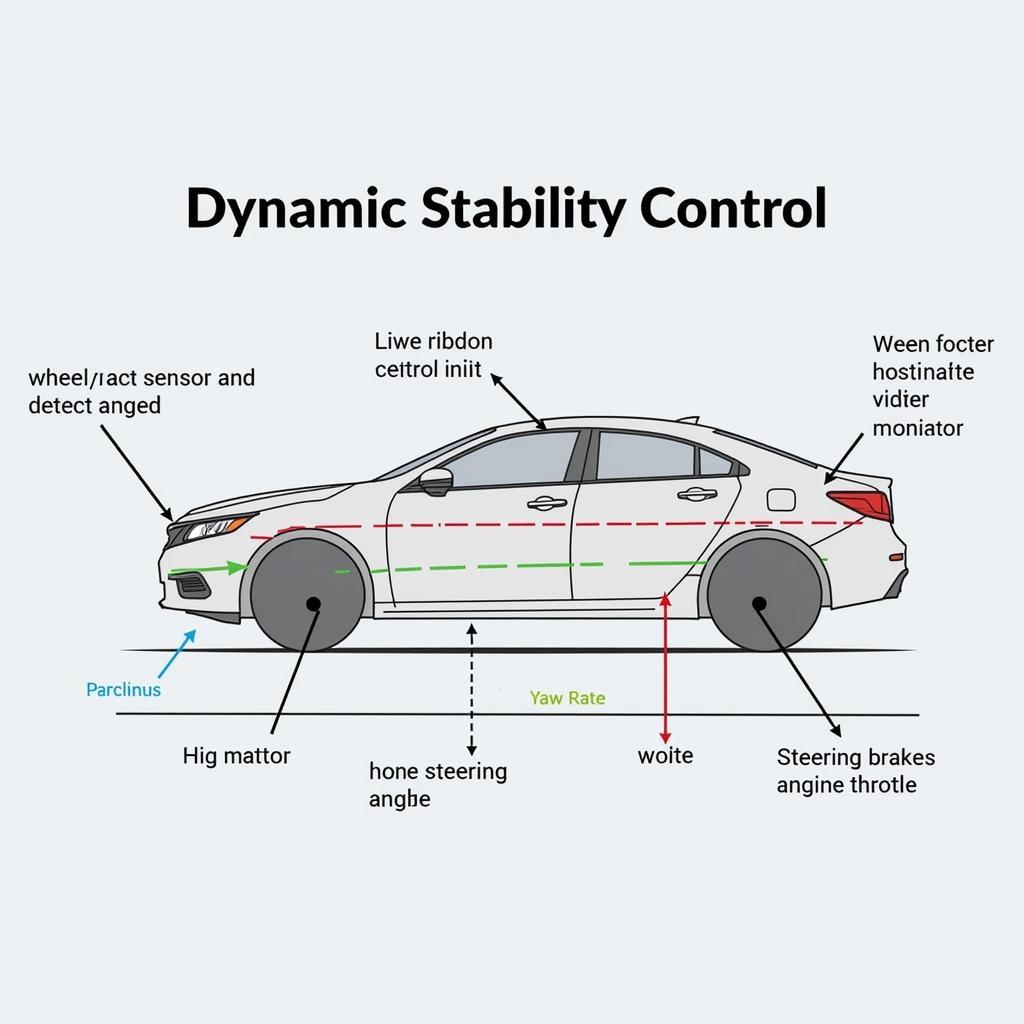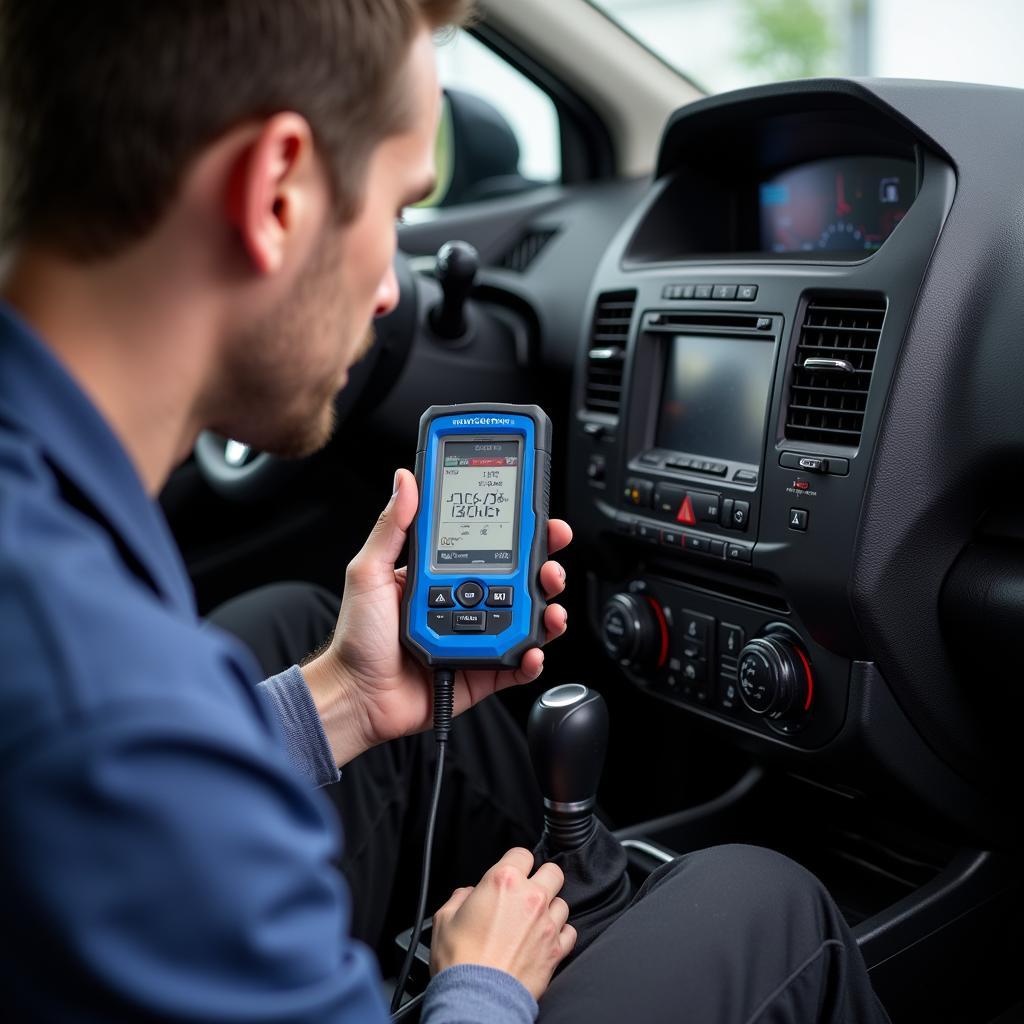Does DSC Mean Direct Service Care?
Does Dsc Mean Direct Service Care? While DSC is most commonly associated with Dynamic Stability Control in vehicles, it can also stand for Direct Service Care in some contexts, particularly within the healthcare industry. Understanding this potential ambiguity is important for clear communication.
Decoding DSC: Dynamic Stability Control vs. Direct Service Care
DSC is primarily known as an automotive safety system – Dynamic Stability Control. This active safety feature enhances vehicle control and stability by detecting and preventing skids. It works by selectively applying brakes and reducing engine power to maintain traction and prevent loss of control, especially in challenging driving conditions. However, in healthcare and social services, DSC can sometimes represent Direct Service Care. This refers to the hands-on care provided directly to clients or patients, such as assistance with daily living activities, medical treatments, or therapeutic interventions. It distinguishes these direct services from administrative or support roles within the same organization.
Understanding Dynamic Stability Control (DSC) in Vehicles
Dynamic Stability Control is a crucial safety feature found in many modern vehicles. It’s designed to help drivers maintain control in slippery or unpredictable conditions, significantly reducing the risk of accidents. The system continuously monitors the vehicle’s stability and intervenes when necessary to prevent skids or loss of control. This can involve applying brakes to individual wheels, adjusting engine power, or even adjusting steering input. DSC is particularly effective in preventing rollovers in SUVs and other high-center-of-gravity vehicles.
 Dynamic Stability Control System Explained
Dynamic Stability Control System Explained
For example, imagine driving on a wet, winding road. Suddenly, you encounter a patch of ice. Your car starts to skid, but before you can react, the DSC system kicks in, applying brakes to the appropriate wheels and modulating engine power to regain control and keep you on your intended path. This quick intervention can be the difference between a near miss and a serious accident.
Exploring Direct Service Care (DSC) in Healthcare
In the context of healthcare and social services, Direct Service Care (DSC) encompasses a range of hands-on services provided to individuals in need. These services are tailored to meet the specific needs of each client and can include personal care, medical assistance, and emotional support. DSC professionals work directly with clients, providing essential care and support to enhance their quality of life.
Examples of DSC roles include certified nursing assistants, home health aides, personal care attendants, and direct support professionals. These individuals play a vital role in providing compassionate care and support to individuals with disabilities, chronic illnesses, or age-related challenges. They assist with daily living activities such as bathing, dressing, and meal preparation, as well as providing medical assistance, such as administering medications and monitoring vital signs.
Why is it Important to Distinguish Between the Two Meanings?
The potential for confusion between the two meanings of DSC highlights the importance of context. When discussing vehicle safety, DSC unequivocally refers to Dynamic Stability Control. However, within the healthcare and social services sectors, DSC may refer to Direct Service Care. Being mindful of this distinction is crucial for clear communication and accurate understanding.
 Mechanic Checking Car DSC System
Mechanic Checking Car DSC System
“Clear communication is paramount in both automotive and healthcare,” says renowned automotive engineer, Dr. Emily Carter. “Using precise terminology ensures everyone is on the same page, especially when discussing important safety features or care plans.” Similarly, healthcare consultant, Mr. David Miller, emphasizes, “Understanding the specific context of DSC is crucial in healthcare to ensure accurate interpretation of documentation and effective communication among care providers.”
Conclusion
So, does DSC mean direct service care? Yes, in certain healthcare contexts, DSC can stand for Direct Service Care. However, more commonly, and especially in automotive discussions, DSC refers to Dynamic Stability Control. Recognizing this distinction is vital for clear communication and understanding in both fields. Understanding the different meanings of DSC ensures that you can interpret information correctly and communicate effectively, whether you’re discussing car safety or healthcare services.
FAQ
- What does DSC stand for in a car? Dynamic Stability Control.
- What does DSC stand for in healthcare? Direct Service Care.
- How does DSC improve car safety? By preventing skids and loss of control.
- What are some examples of Direct Service Care? Personal care, medical assistance, emotional support.
- Why is it important to differentiate between the two meanings of DSC? To avoid confusion and ensure accurate communication.
- What are the benefits of DSC in elderly care? Increased independence and improved quality of life.
- Is DSC always beneficial in driving conditions? While generally beneficial, DSC can sometimes be less effective in extreme off-road conditions.
Situations where these questions are commonly asked
These questions often arise in online forums, car maintenance discussions, healthcare training, and when reviewing service plans for individuals requiring assistance. Clarifying the meaning of DSC is vital for effective communication in these situations.
Further Reading and Related Topics
You can find more information on car safety features and maintenance on our website. We also offer resources on healthcare services and support for individuals with disabilities.
Need further assistance? Contact us via WhatsApp: +1(641)206-8880, or Email: [email protected]. Our customer service team is available 24/7.

